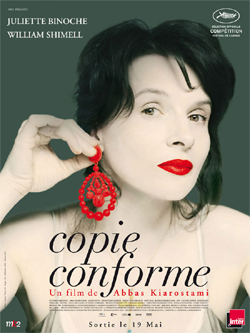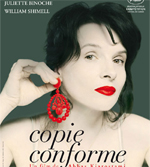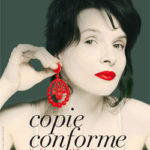 Cinema is said to be the seventh art. But, as films are also commercial products with their financing and budget constraints, their promotion has become an integral part of them.
Cinema is said to be the seventh art. But, as films are also commercial products with their financing and budget constraints, their promotion has become an integral part of them.
In some cases, this is done discreetly; however, for the promotion of the film by Iranian director Abbas Kiarostami, it was considerable. Because the press, with a few exceptions, tried to present us with a film of ultimately average quality as a masterpiece. But, unfortunately, not everyone can be Michelangelo Antonioni, and this film follows in his footsteps but never manages to match the depth of the late Master’s films (let us remember the trilogy: La Notte, L’Avventura, L’Eclisse made in the early 60s) about alienation and incommunicability as well as existential dissatisfaction.
The synopsis is straightforward: a man (the English baritone William Shimell, who plays the role of a writer) and a woman (Juliette Binoche, who earned the Best Actress award at the 2010 Cannes Festival for her intense performance in this role) meet for some reason and spend a day together confronting each other in different situations. This gives rise to a kind of mutual confession between two people who seem to get closer but ultimately remain alone with their feelings.
This is a highly symbolic film that revolves around two characters who could be a beautiful couple but are not, and who, in the end, perhaps do not even exist as such in reality but simply in their imagination. But whose imagination is it? The woman’s, who is searching without finding herself, alone with desires that cannot become reality? Or the man’s, who appears both close and foreign to her? Is there thus a perpetual misunderstanding between men and women?
Let us adhere to Abbas Kiarostami’s words: “I believe that men have an egocentric relationship with love. Whereas women are in permanent questioning. In the film, the man assumes the evolution of love. He says there is no need to worry if the buds turn into flowers and if the flowers fall. The woman, however, cannot accept the change and would like to remain at the bud stage.”
Thus, past life memories are abandoned only to resurface better, with the contribution of time and reflection, in a more complete form. Hence this eternally renewed need to reproduce facts and events according to one’s own illusions, which makes, as the film’s title suggests, sometimes the “Certified Copy” better than the first draft. The images of the film shot in Tuscany are magnificent, with the framing of the images accompanying the unfolding of the script like music.



